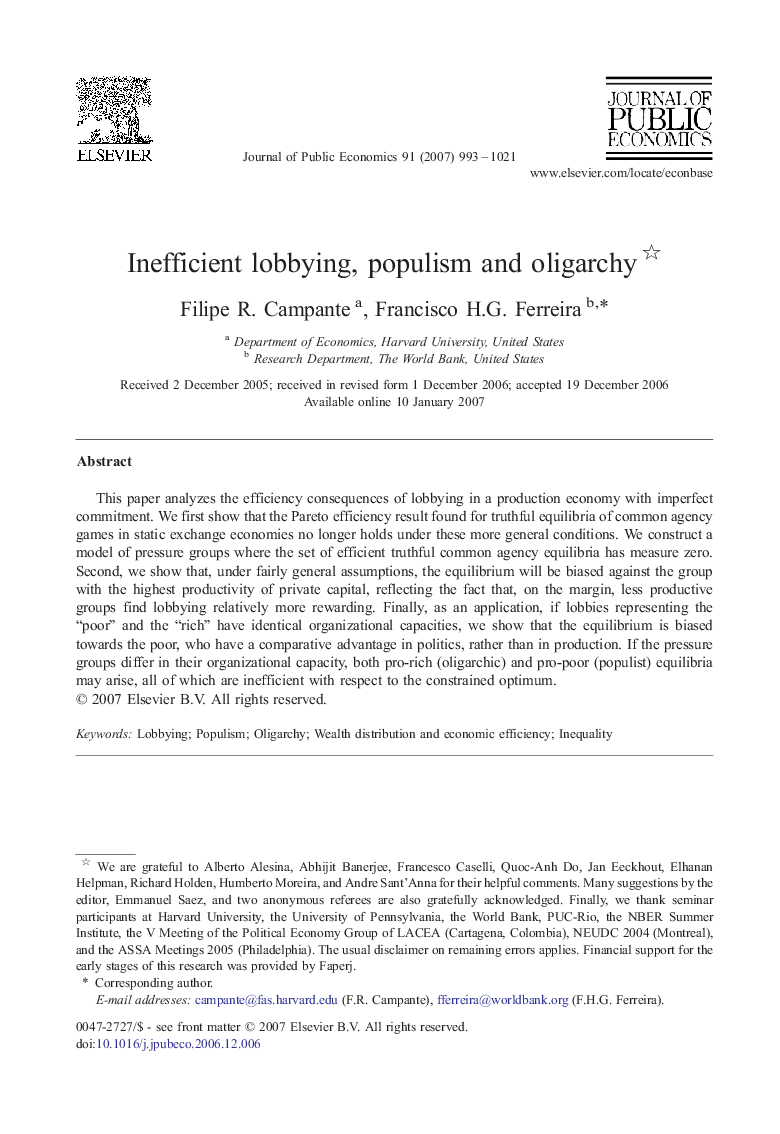| Article ID | Journal | Published Year | Pages | File Type |
|---|---|---|---|---|
| 969108 | Journal of Public Economics | 2007 | 29 Pages |
This paper analyzes the efficiency consequences of lobbying in a production economy with imperfect commitment. We first show that the Pareto efficiency result found for truthful equilibria of common agency games in static exchange economies no longer holds under these more general conditions. We construct a model of pressure groups where the set of efficient truthful common agency equilibria has measure zero. Second, we show that, under fairly general assumptions, the equilibrium will be biased against the group with the highest productivity of private capital, reflecting the fact that, on the margin, less productive groups find lobbying relatively more rewarding. Finally, as an application, if lobbies representing the “poor” and the “rich” have identical organizational capacities, we show that the equilibrium is biased towards the poor, who have a comparative advantage in politics, rather than in production. If the pressure groups differ in their organizational capacity, both pro-rich (oligarchic) and pro-poor (populist) equilibria may arise, all of which are inefficient with respect to the constrained optimum.
